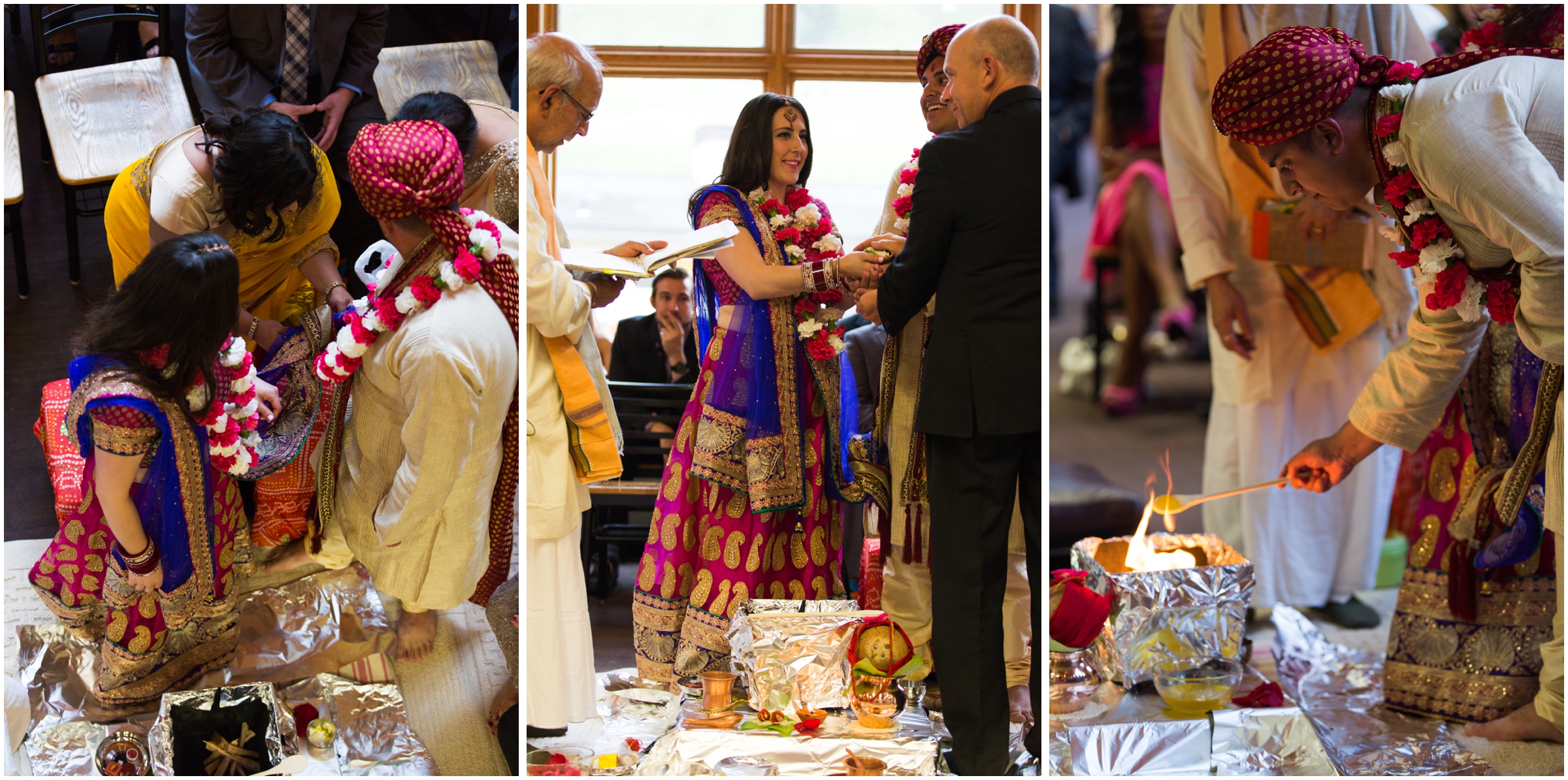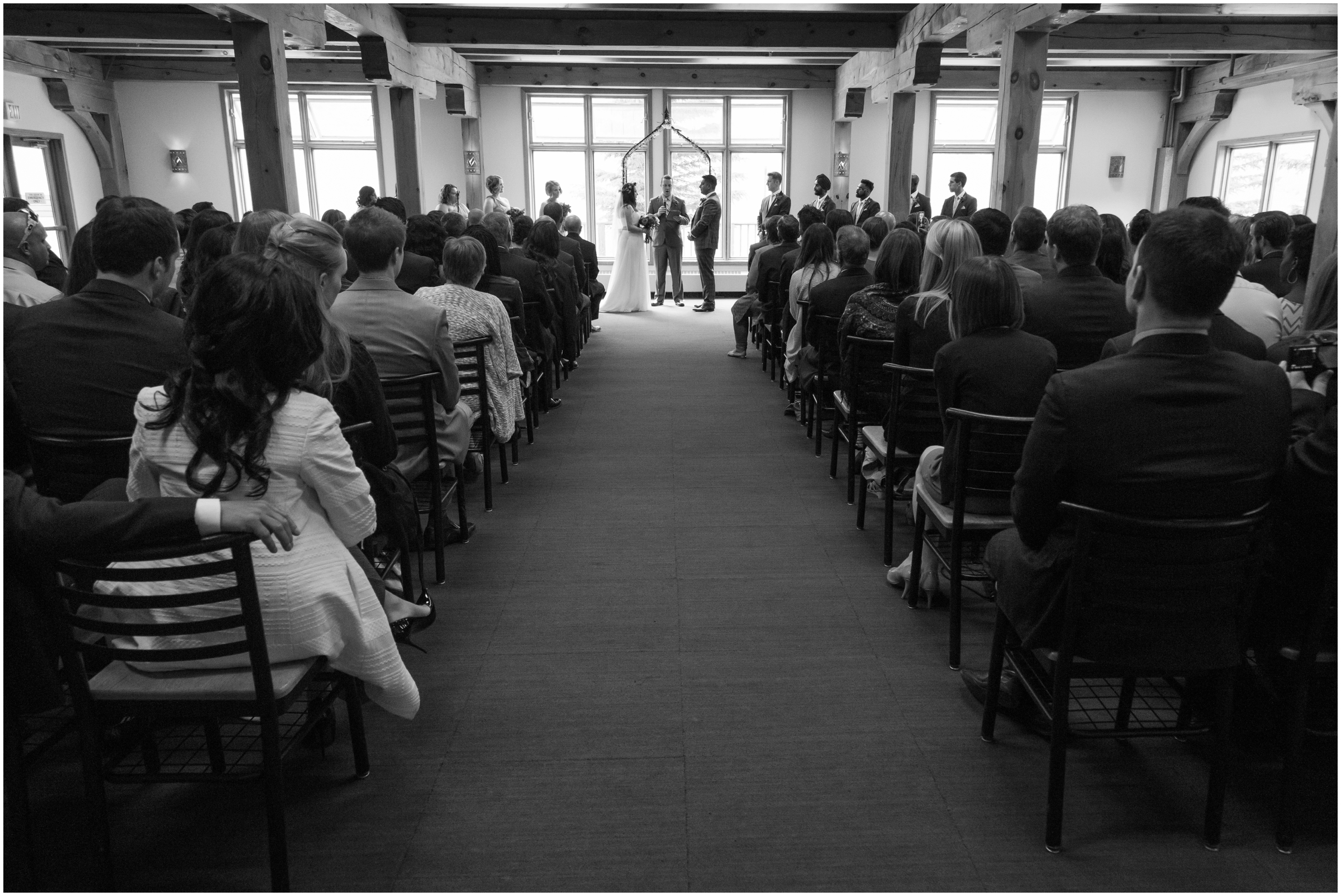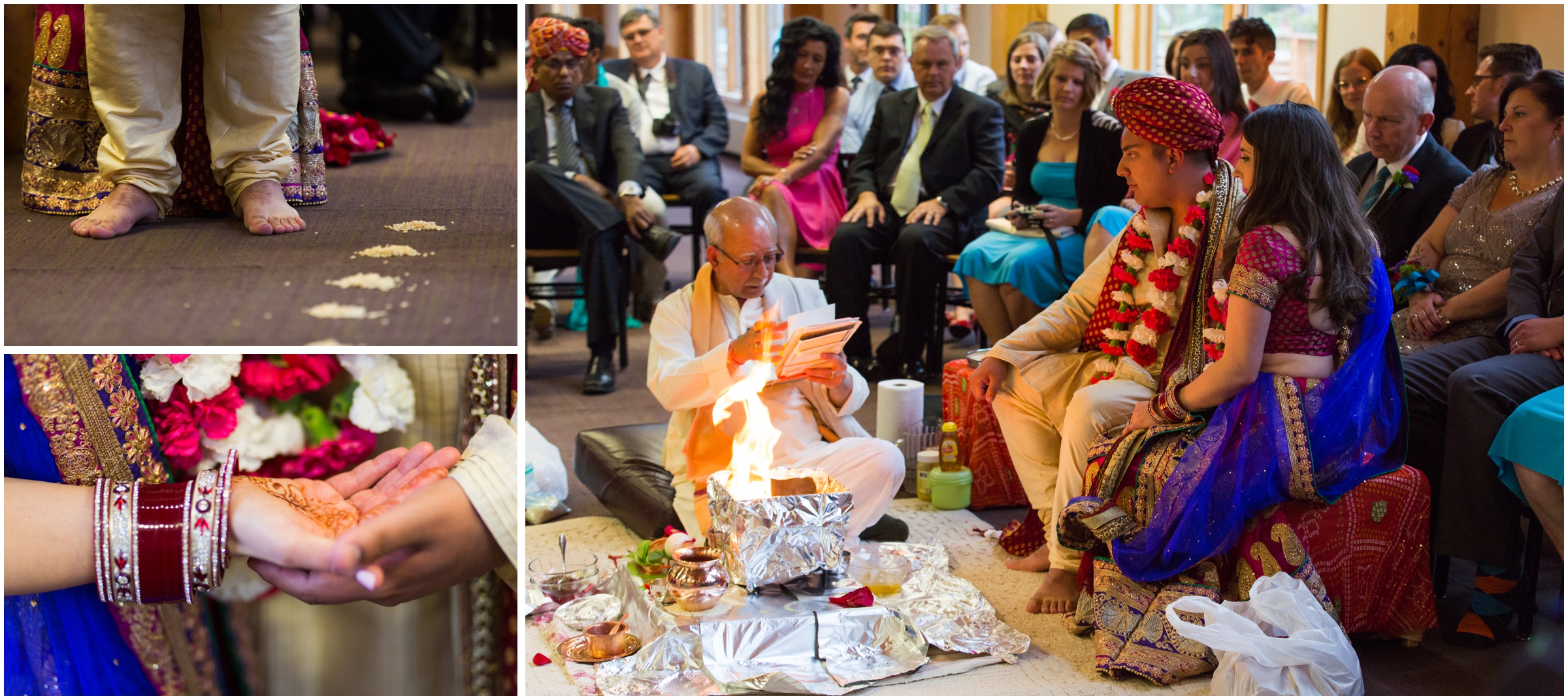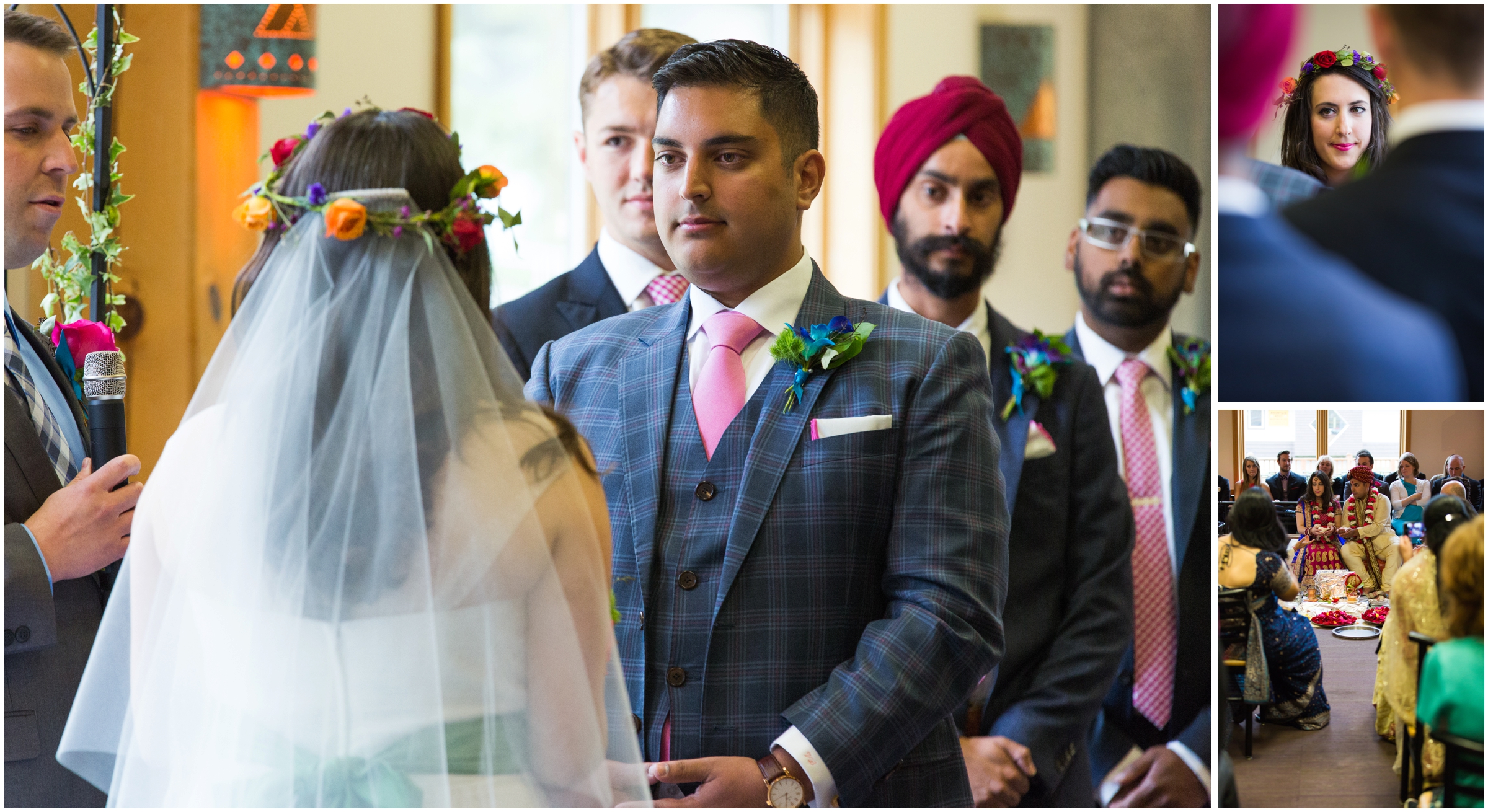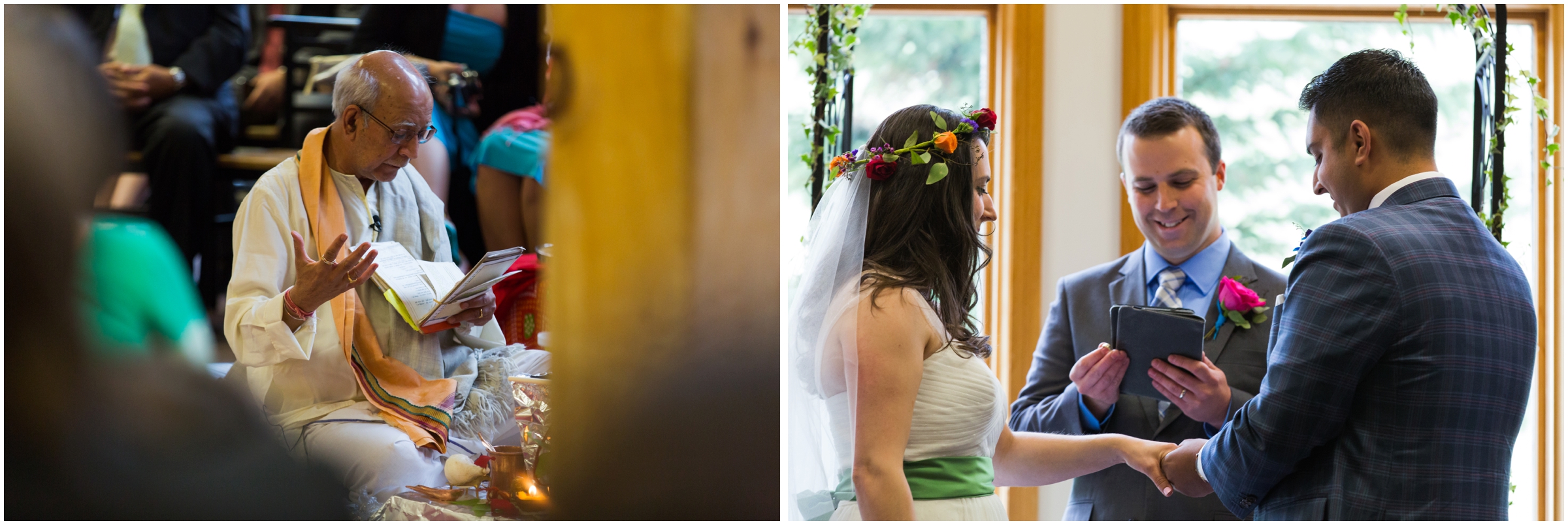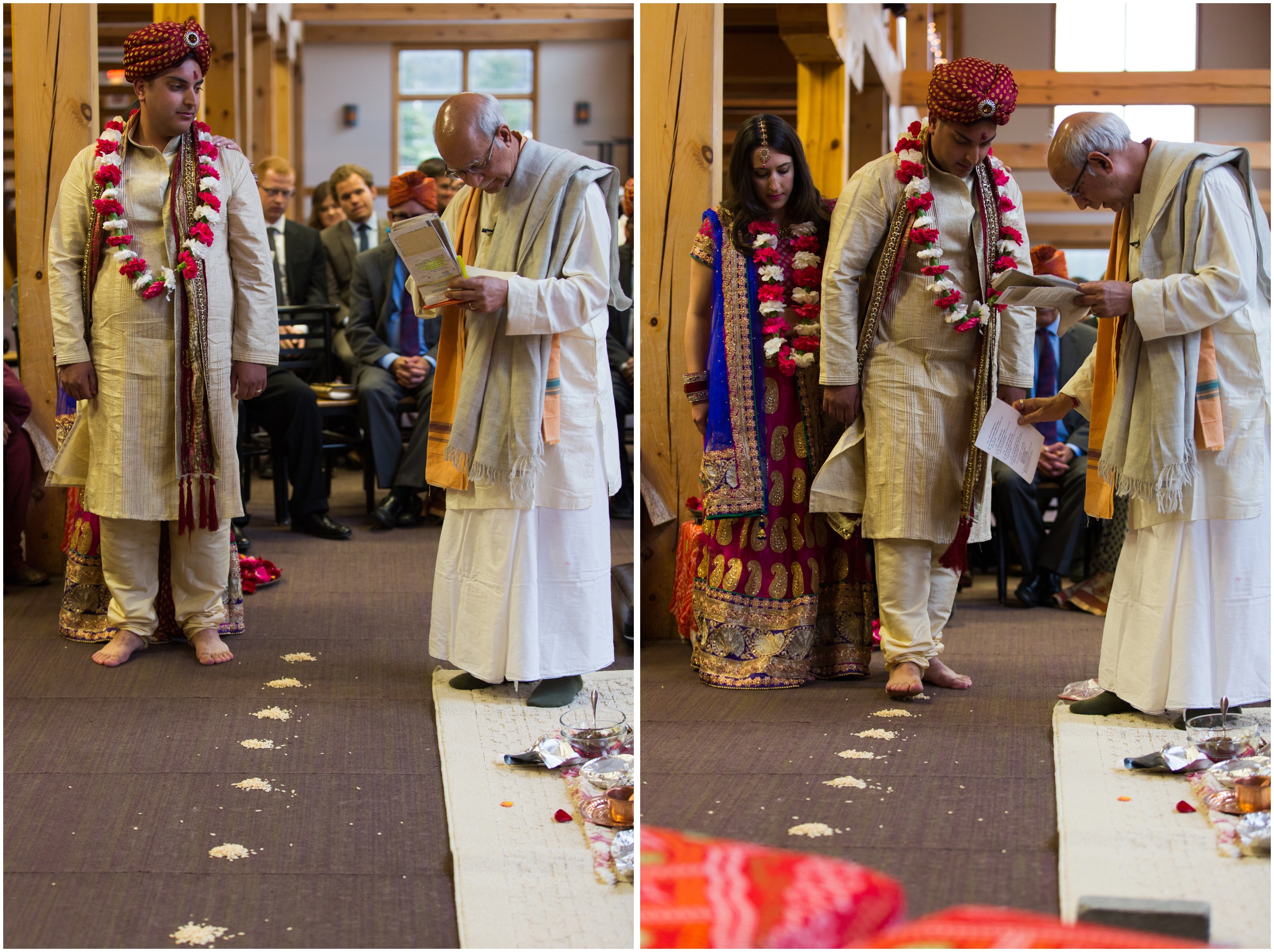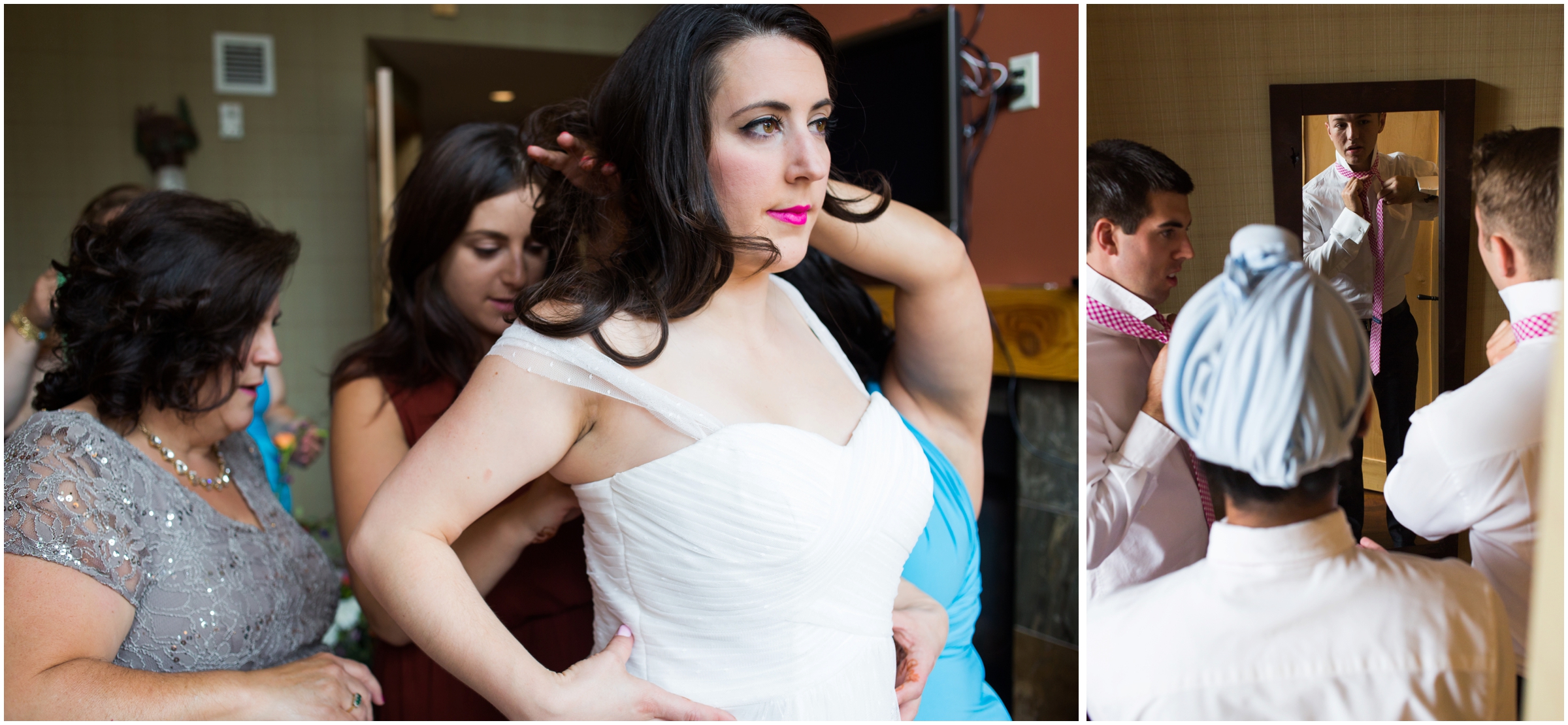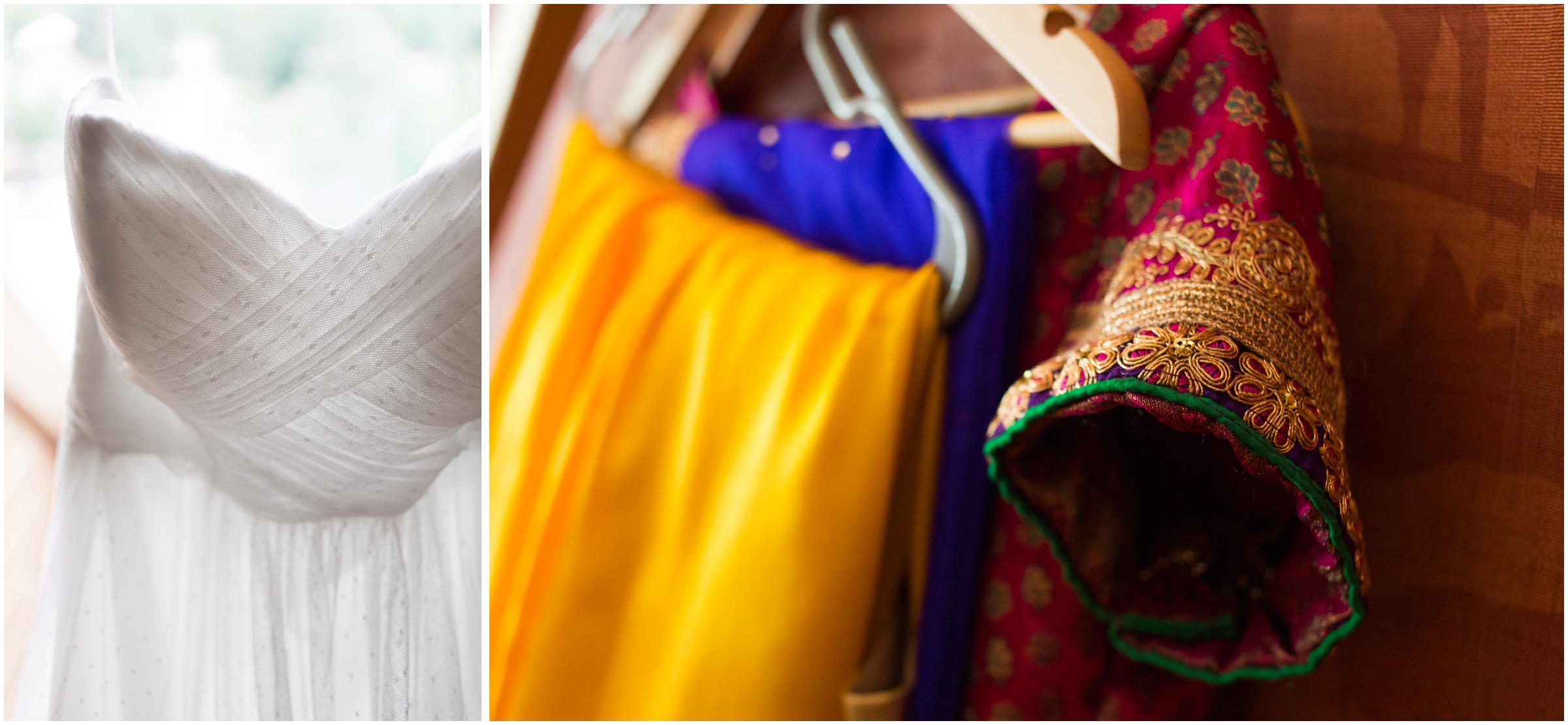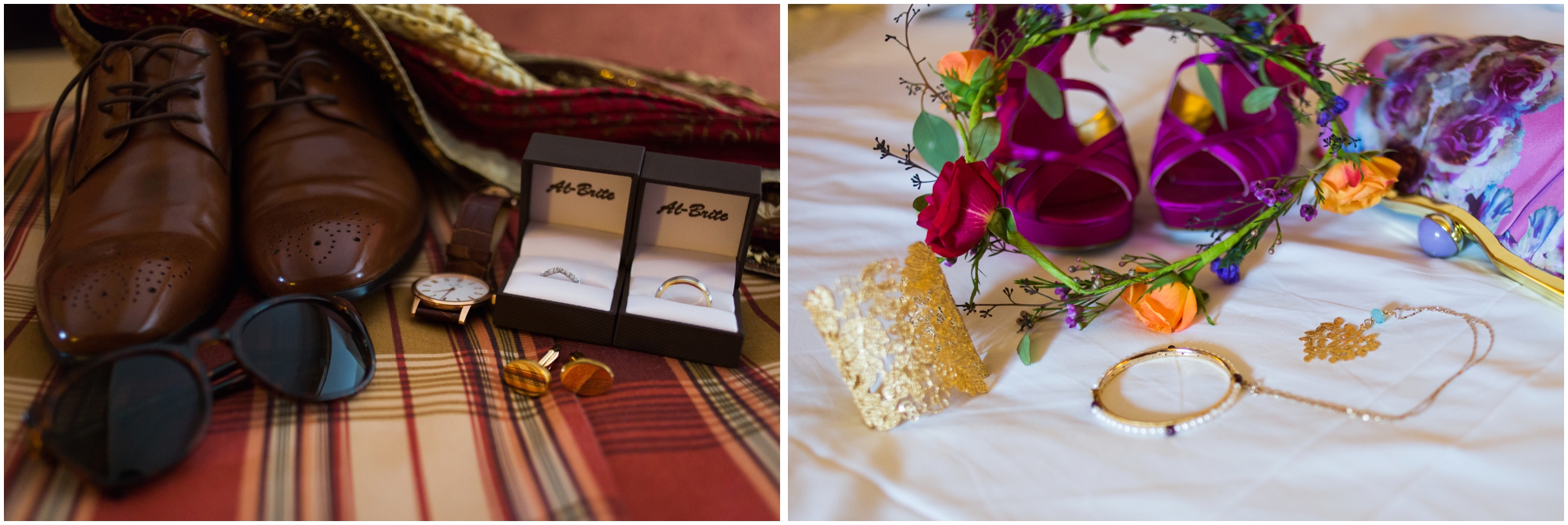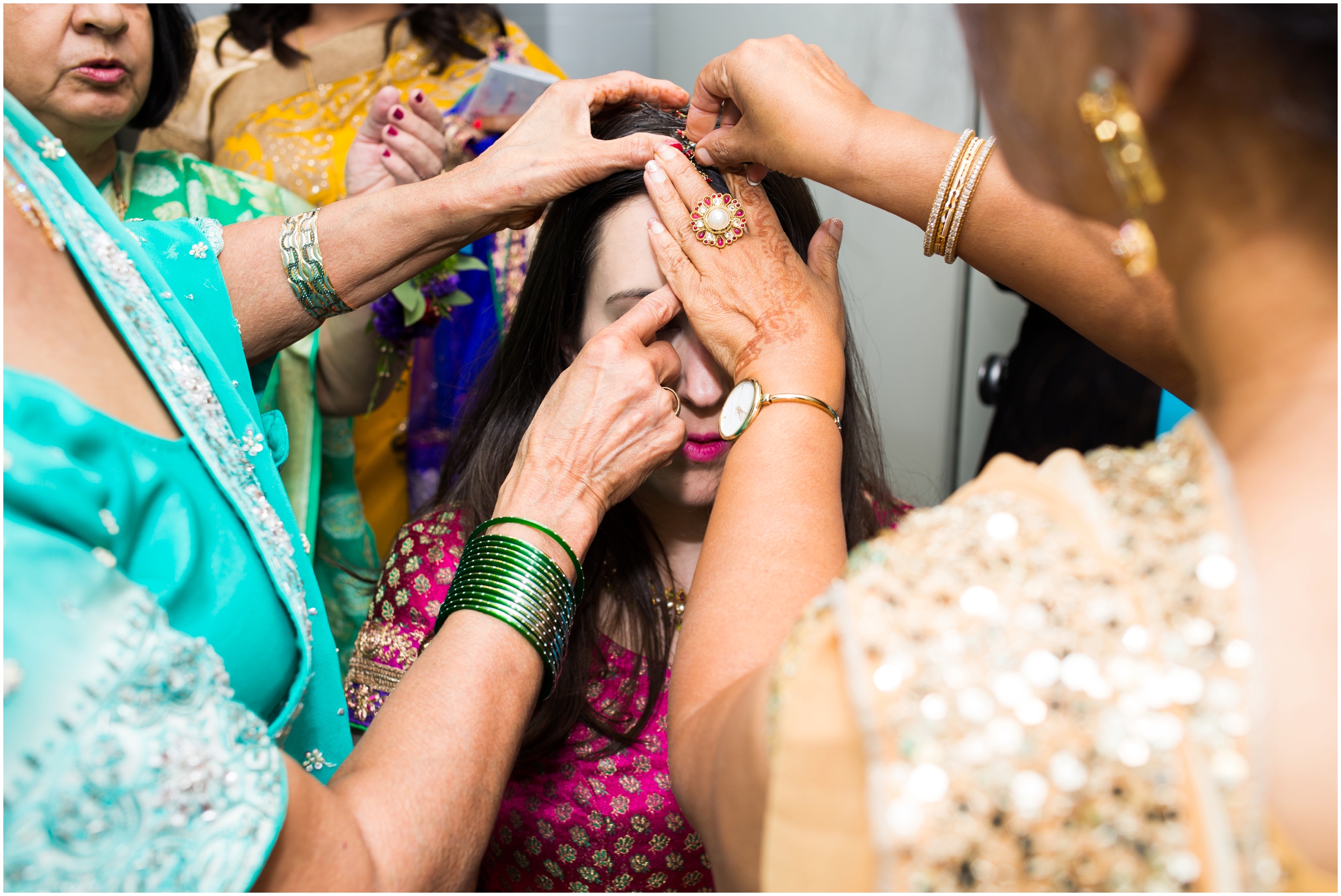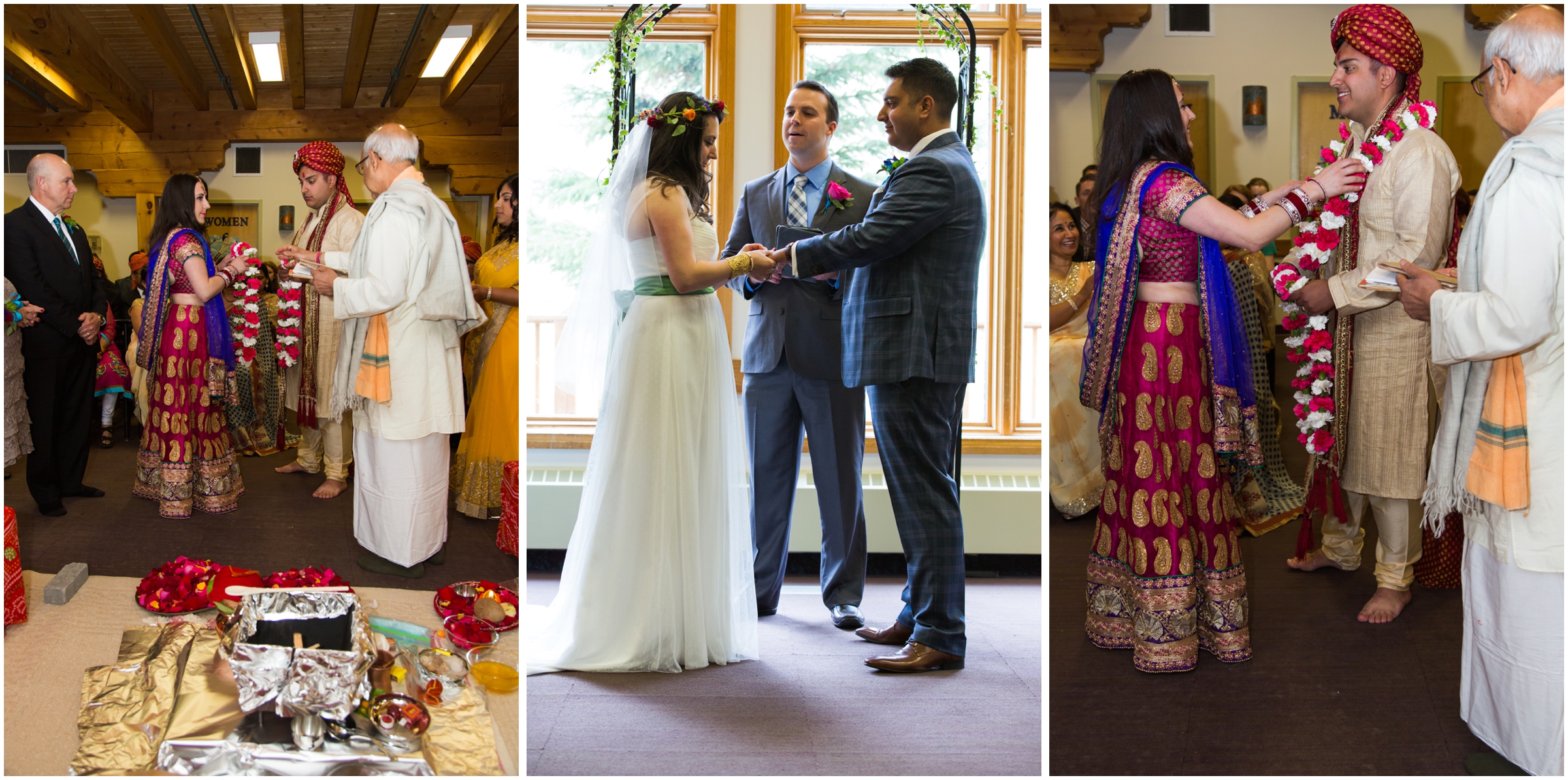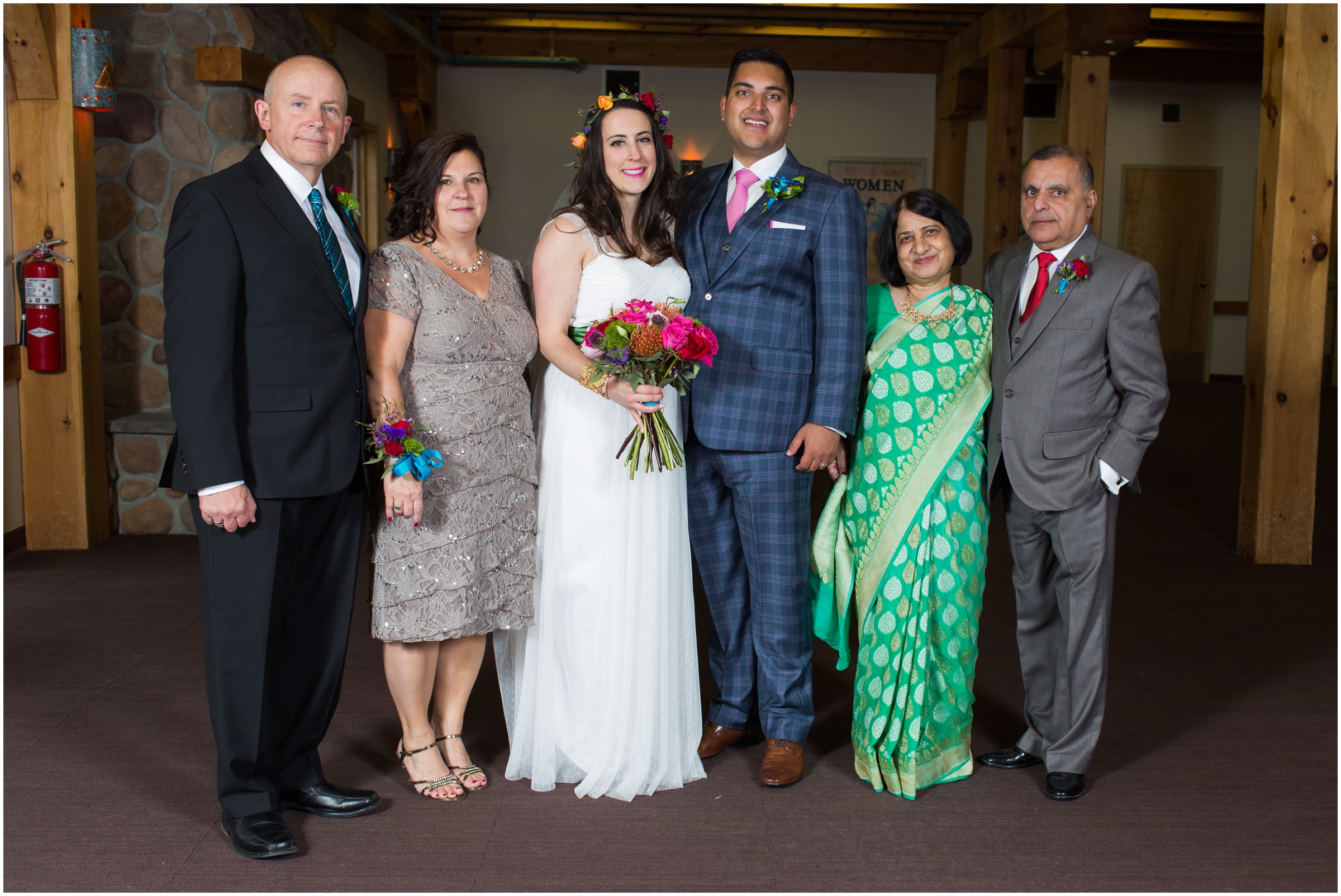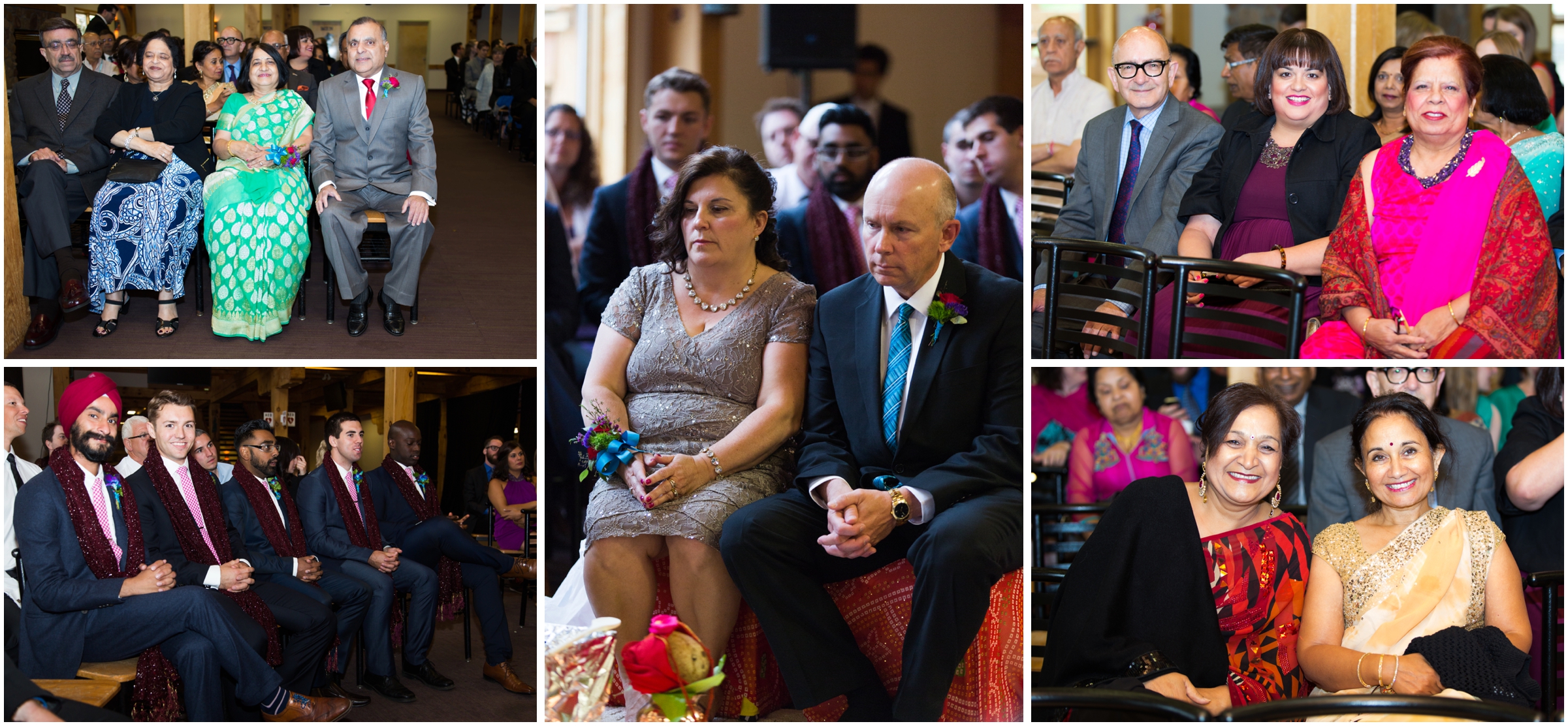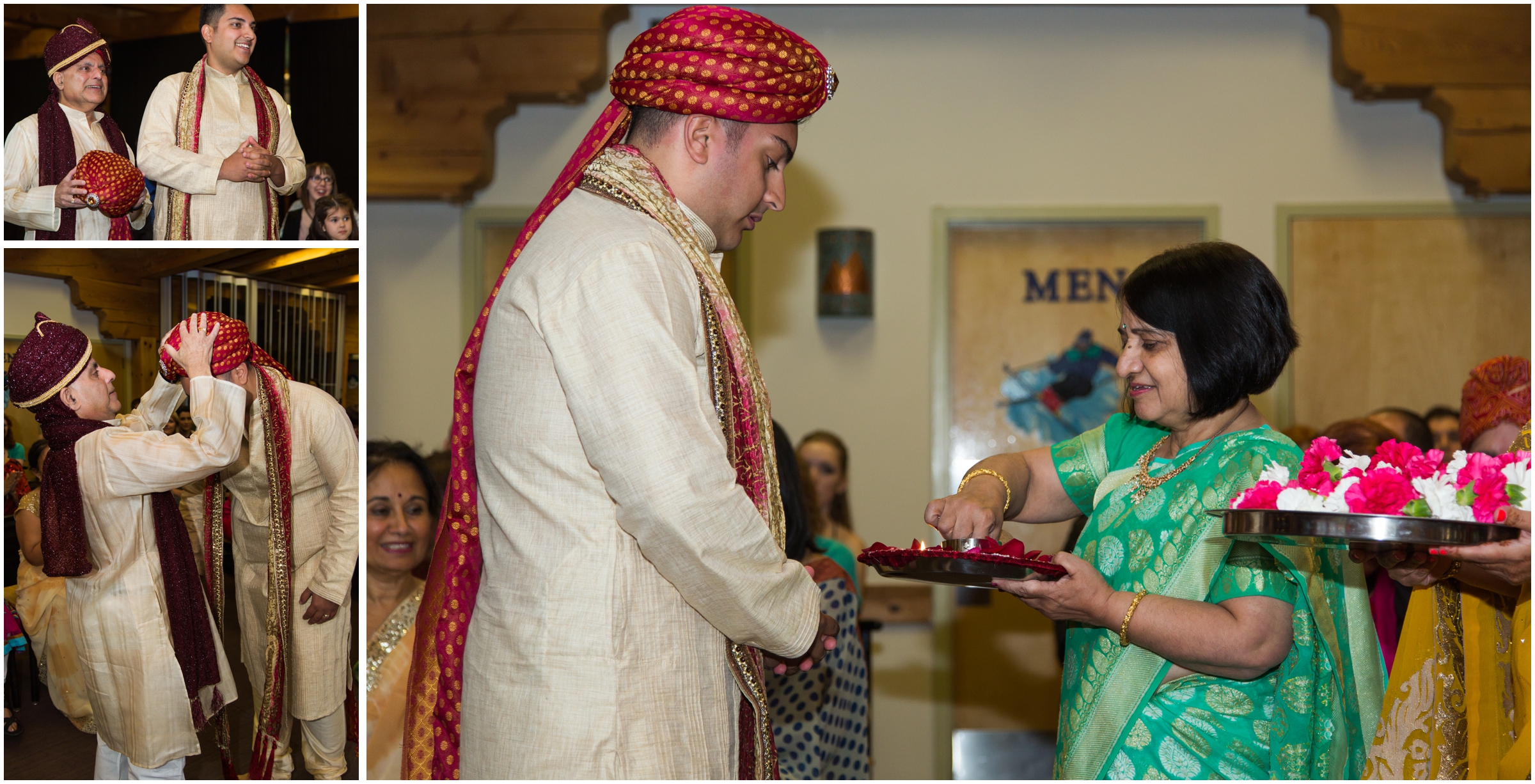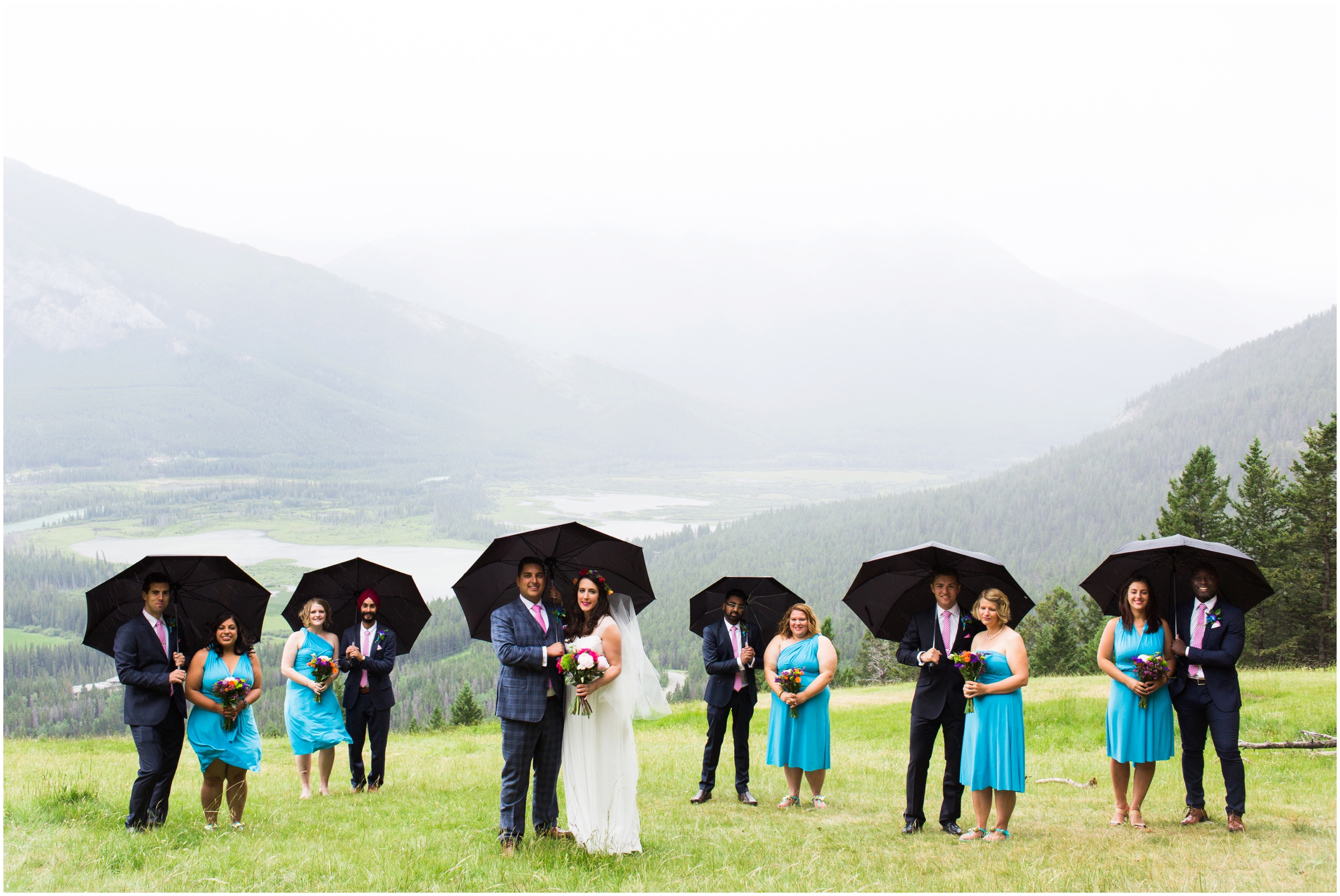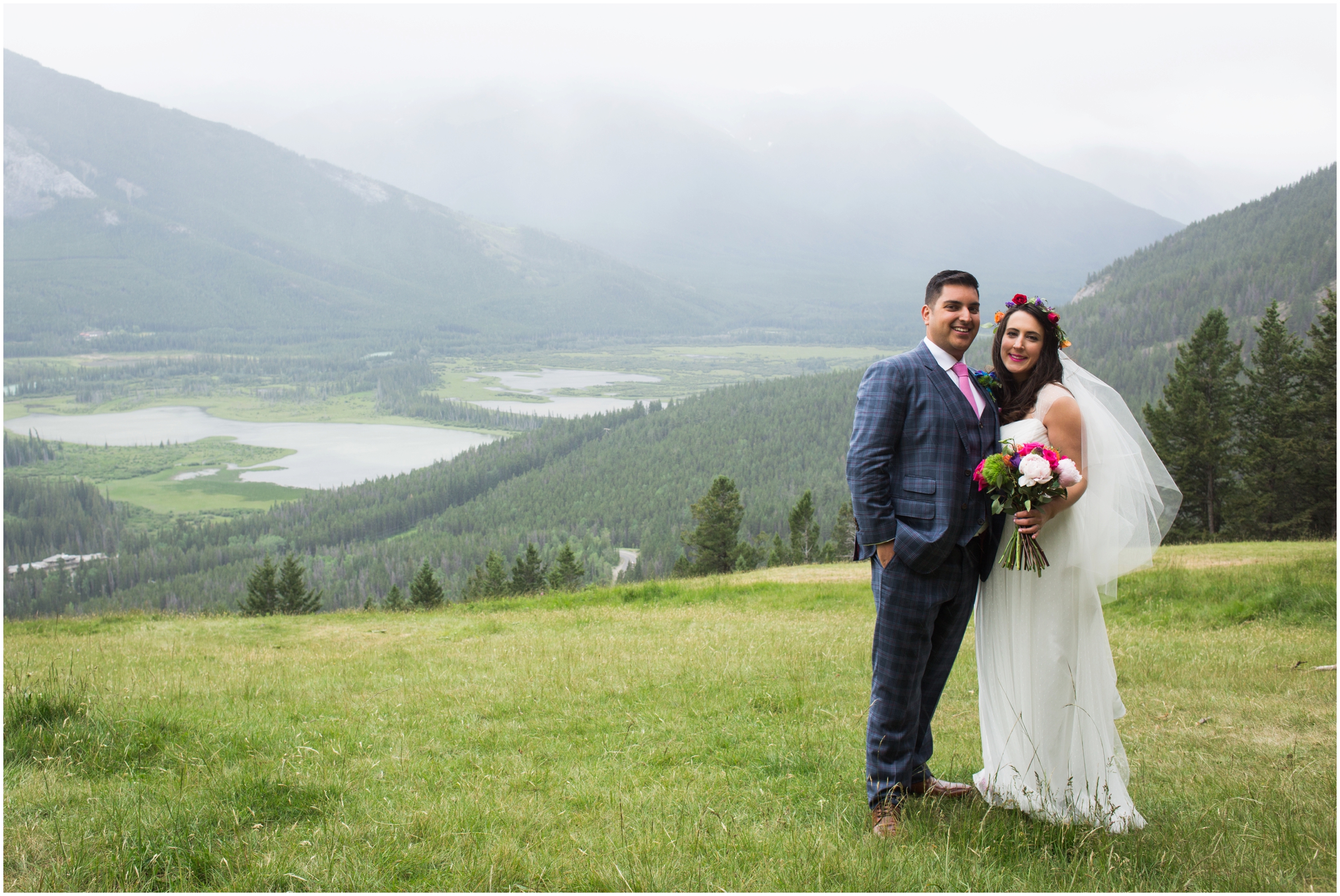Each year I have the opportunity to celebrate a fusion of love with many couples. I love seeing two humans identify important traditions and details in their individual lives to bring together in their new life together. For some couples, this means writing their own vows expressing their love for one another. For others, important traditions emerge during the reception with a group of friends singing a song or through a speech. For many, religious traditions are central to this fusion of lives through their marriage ceremony.
This blog post is the first in a series exploring interfaith weddings. Through this series I hope to offer a platform to discuss some of the joys and challenges of planning an interfaith wedding. Specifically, we'll explore how each couple chose to incorporate various traditions, which symbols and traditions they found to be most important, and how their families reacted to the fusion of traditions. In this first post, I sit down with Vikram and Rebecca to discuss their wedding celebration which combined Hindu and Christian traditions.
Selena: How did you incorporate elements from each of your traditions into your wedding celebration?
Becky: We decided to have two separate ceremonies on the same day rather than incorporating our two different religions into one. The Christian wedding ceremony was first--white dress, suit, pastor, attendants, etc. While our guests filled up on food and drinks, we took a break to take photos in these clothes. Then we changed into traditional Indian clothing for the Hindu ceremony.
Vikram: Our priest kept it to under an hour, but traditionally a Hindu ceremony lasts 3-4 hours. The guest chairs were arranged in a circle around us. We sat on the ground near the priest and a small fire, with our families sitting nearby.
S: What did you learn about your partner's traditions through planning your wedding?
B: I learned a lot about Hinduism because I asked a lot of questions along the way. We decided that as both religions believe in God, we would focus more on that aspect rather than any other names for God that exist in either Hinduism or Christianity.
V: Being born and raised in Edmonton, I have seen a lot of Christian ceremonies over the years. Taking Religious Studies as a minor at the University of Alberta allowed me to understand a lot of the meaning in the ceremony.
S: What was your favourite element from your partner's tradition?
V: I like that the Christian ceremony is more personal. Becky's brother was our pastor, so he was able to tell some jokes and stories that were personalized to us.
B: I like that Hinduism teaches that the partners are equal. There is a part in the ceremony where we take turns leading the other person around the fire. This symbolises that during parts of the marriage one will lead the other, at other parts we'll switch, but that we're meant to walk together, side by side.
V: I also like the Christian tradition of not seeing each other before the ceremony. Before the day of the wedding, we'd seen each other's Indian clothes, but Becky wouldn't show me her dress and I decided not to show her my suit. We both got ready with our friends before the ceremony, so the moment of seeing each other during the Christian ceremony was really special. With the Hindu ceremony we got to see each other and take pictures together before it started.
B: There's also an interesting parallel between the two ceremonies where each partner shows that they're participating in the marriage with their free will. In the Christian ceremony, this comes during the vows where each partner verbally indicates their consent by repeating the vows and saying "I do". At the beginning of the Hindu ceremony each partner indicates their free will through the exchange of flower garlands.
V: I'm a huge fan of the length of Christian ceremonies -- you can be in and out in twenty minutes. Hindu ceremonies can go on for hours.
S: Describe the ways, if at all, that your religious outlook has changed now that you have been with your partner for a few years.
B: Vik was always pretty chill, but I was a bit more analytical about everything. I've calmed down about needing to know the meaning of every tradition in Hinduism as a lot of details get lost in translation. Most of the events and traditions are purely cultural these days anyway.
S: How did your families react to this fusion of traditions?
V: Both of our families were great and really supportive through the wedding planning.
B: It was especially fun for my family to experience a Hindu ceremony as that is pretty foreign for a lot of white people.
V: My family has been to Christian weddings before, so it wasn't that new of an experience for them.
S: What advice would you give to other couples planning an interfaith wedding?
V: We had meetings with both the pastor and Hindu priest before the wedding to discuss in detail the parts of each ceremony. This allowed us to learn and appreciate each other’s traditions and make each ceremony align with our values.
B: Planning a wedding doesn't need to be as hard as people make it out to be. They key is to stay organised and work together as a team.
V: It's great to have your own traditions, but make sure the other person feels validated in theirs as well and that the two are split evenly in the ceremony. Also, just roll with it.
B: And have snacks. Hanger will hit you. Don't make important decisions when you're hangry.
Here you can see the full blog post of photos from Vikram and Becky's Banff wedding. You can also see this interfaith Ukrainian and Jewish wedding photographed in Montréal and this interfaith Filipino and Christian wedding photographed in Edmonton. This Life by Selena Photography blog post about wedding photography was produced by Montreal photographer Selena Phillips-Boyle. Cet article de blogue sur la photographie de mariage Life by Selena était produit par Selena Phillips-Boyle, photographe montréalaise.



